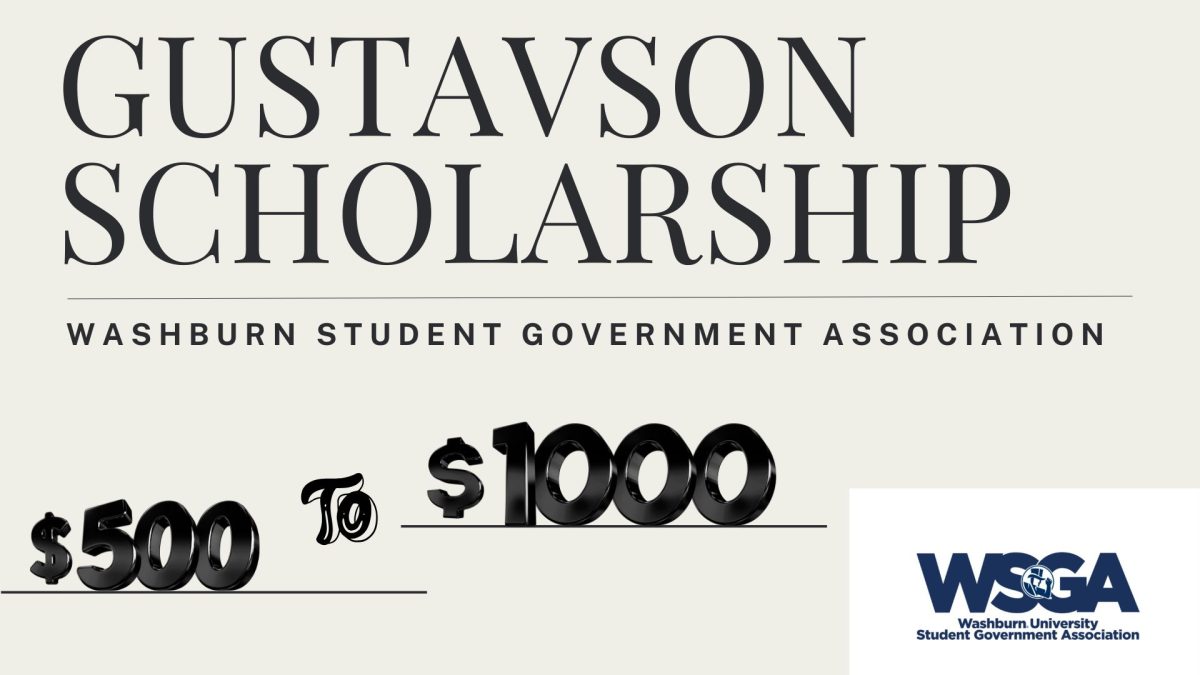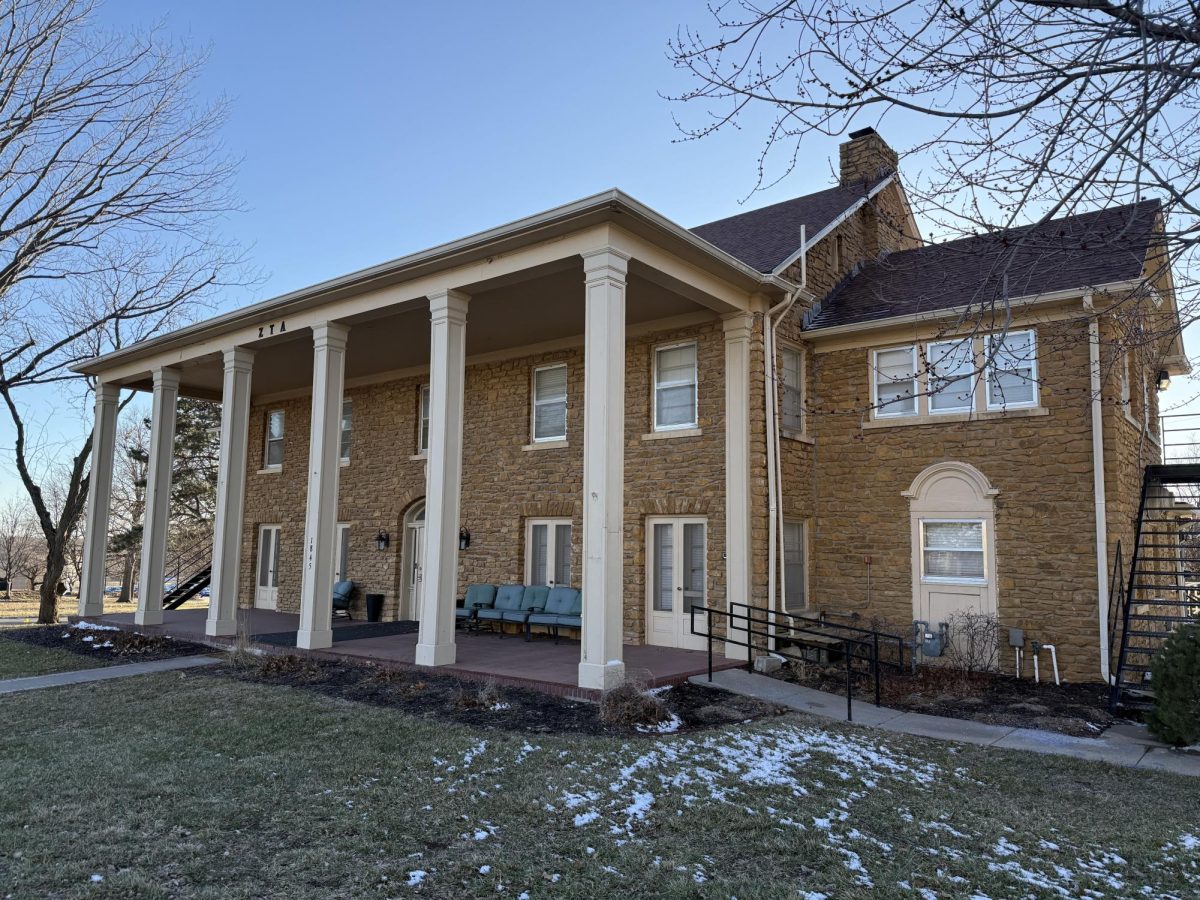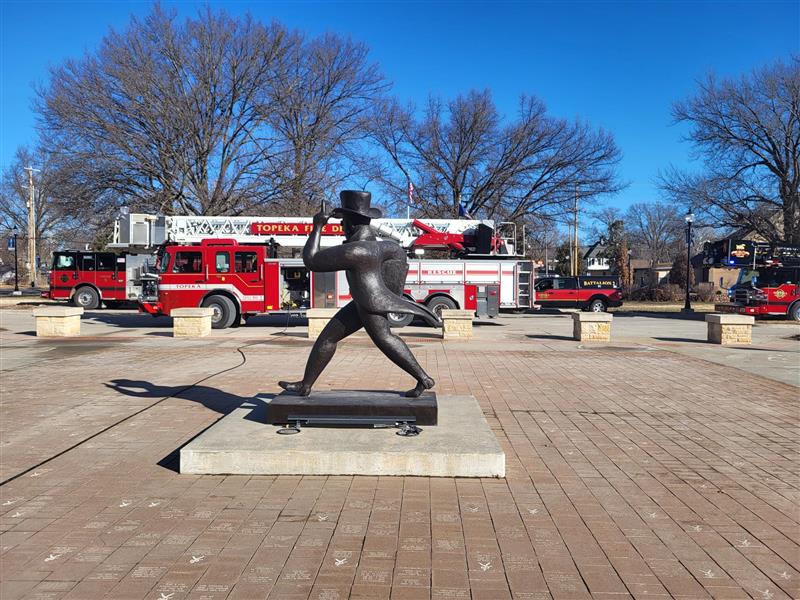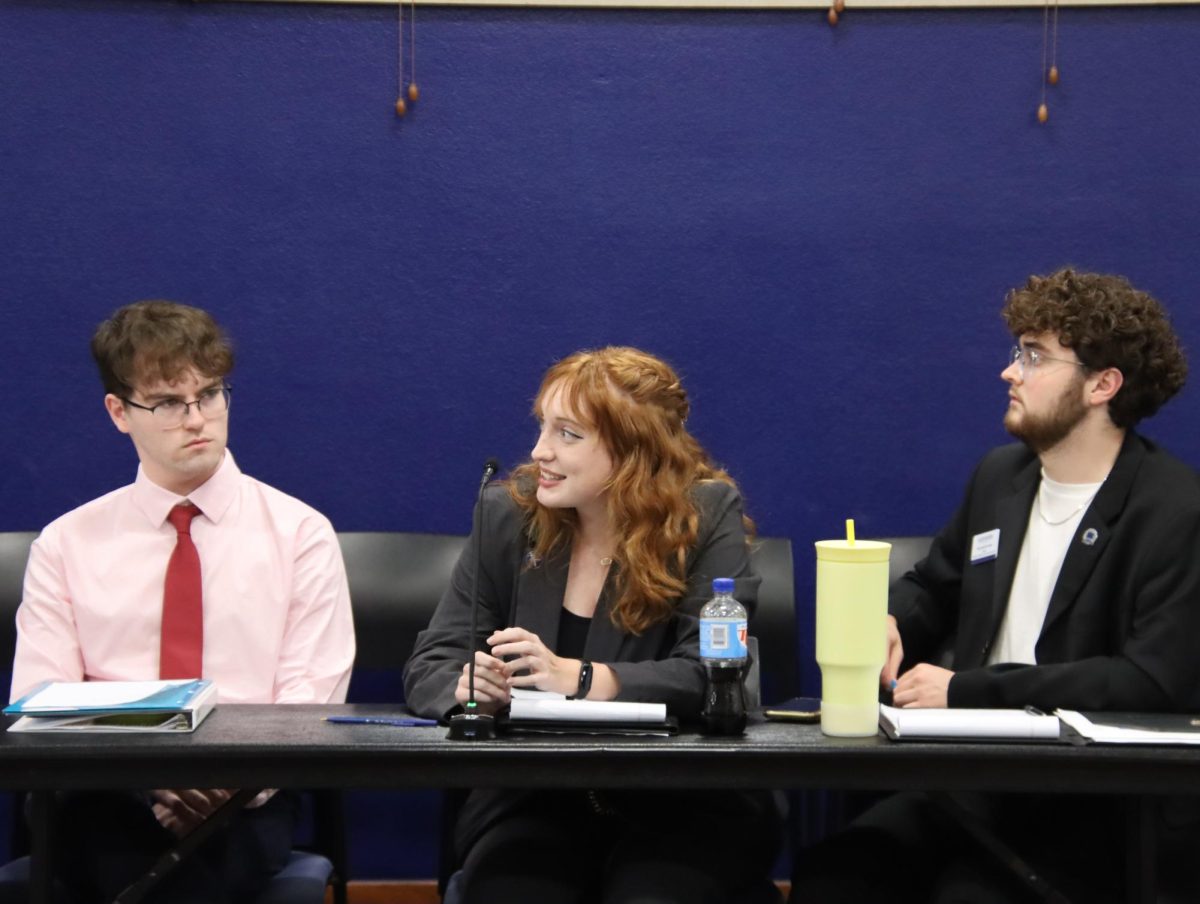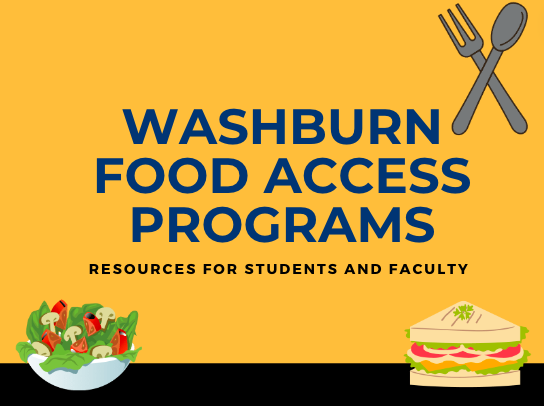
Student hunger is prevalent across the nation, and Washburn has started several programs to combat this issue and to provide food access for its students.
“We know from national data that about 51% of college students, before COVID, experienced food insecurity. Obviously, COVID had huge ramifications on access to food across the entire world,” said Jason Miller, associate professor of anthropology.
Miller is involved with the topic of food insecurity through being the advisor for Bods Feeding Bods, Washburn’s food pantry. He discussed how he thinks Washburn’s numbers for food insecurity are even higher than the national average.
“We know that Washburn students tend to be pretty diverse, they tend to skew into the lower income categories, they tend to be a lot of first-time college students,” Miller said. “Historically, those identity groups have also been more closely associated with higher rates of food insecurity.”
The Campus Activities Board is just one of the many organizations helping to combat the issue of hunger on campus. CAB has an event called grocery bingo once a semester for students to get food through a fun activity.
“It makes students really happy because they get to choose from a bunch of different things that they like, and it gives them a fun time as well because it’s socializing,” said Christina Bailey, junior forensic investigations major.
Grocery bingo is a popular event as it draws in between 100-200 students to the Union Cafe.
“It just gives them a fun little thing to do. Plus it’s bingo and they’re playing with their friends usually, it’s a really social event,” Bailey said.
Another method of food access is the community garden that has been in place since 2009.
“I know that safe food access is a problem for a lot of people and as a broke college student myself, I completely understand the fact that you have to eat on campus sometimes and you can’t really afford groceries,” Bailey said.
While Washburn has several programs, student hunger still remains an issue.
“I think Washburn is doing the best we can. I think there’s always room to grow,” Miller said. “I think we’re doing a good job of getting the word out. People know about some of those resources and are accessing them.”
There are several methods for food access; however, the programs are looking for additional funding due to the high demand for meals.
“Currently, it’s all funded by donations. We are so thankful to our donors and people who give to Day of Giving and those sorts of things,” Miller said. “But, I think that it’s challenging to meet the need as the need grows so strongly.”
Bods Feeding Bods has partnered with Chartwells to create a meal swipes program. Students can take their Washburn ID card to the iCard office and ask to participate in the program, and this will allow 10 swipes for food every 30 days.
“It actually used to be 20 swipes every 30 days, but the response to the program was so overwhelming that we couldn’t fund that many people,” Miller said. “It also speaks to how big the need is, and it’s gonna take more than just donations to ensure that everyone at Washburn is fed.”
At Washburn there is a Basic Needs Coalition where different offices come together to help make sure students are fed, housed and have their fundamental needs. Miller is the chairperson for this group.
“One of the things that I and the other members of that group have really strongly advocating for over the past couple of years is the university to hire a basic needs coordinator,” Miller said. “I’m the advisor for Bods Feeding Bods. But it’s not part of my job, I’m just the advisor.”
The Basic Needs Coalition hopes to have a person whose full time job is to make sure the students are cared for in the most critical sense.
Students have several opportunities to access food such as Bods Feeding Bods, the community garden and the meal swipes program.
Edited by Stuti Khadka and Jeremy Ford





